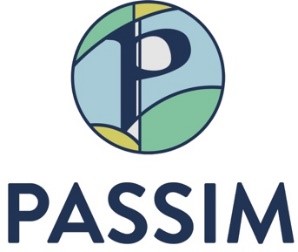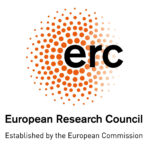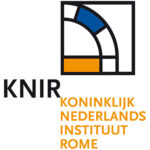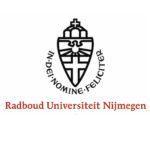The Conference
On 17-20 October 2023, the ERC-funded project PASSIM (Patristic Sermons in the Middle Ages), based at Radboud University Nijmegen, will organise an international conference on the medieval reception and transmission of patristic sermons and the collections in which they are compiled. The conference will take place at the Royal Netherlands Institute in Rome (KNIR).
The sermons preached by the Latin Church Fathers – Augustine, Leo, Gregory, and their contemporaries – had a dynamic afterlife. Throughout the medieval period, they were widely copied, manipulated, and (re)organised in a wide array of collections. These processes of transmission are important not only because they reveal medieval attitudes to the patristic heritage, but also because the medieval mediation of this corpus has greatly impacted which sermons survived and in what shape they reached modern times. When, why and how were patristic sermons combined, (re)organised, and adapted to their medieval contexts?
The conference aims to give due attention to the mediators in the transmission of patristic sermons in the middle ages: the often-inconspicuous compilers and scribes whose creative intellectual activities formed crucial conduits for the transmission of late-antique sermons to new audiences. We intend to go beyond the reconstruction of the original form and context of individual sermons, and to focus mainly on medieval collections and manuscripts in their own right, as well as the practices of compilation that shaped them.
Main perspectives
To understand the compiler’s work, we need insights into both the philological aspects of sermons and sermon collections – their texts, sources and organisation – and the compilers’ and manuscripts’ historical context. As such, the conference aims to bring together philological, historical, theological, and literary perspectives.
We encourage speakers to combine multiple perspectives in their presentations. In addition, we aim to include papers that examine the processes of compilation in specific manuscripts or sermon collections, as well as studies that reflect on (digital) tools and methodologies to understand how sermon compilation worked in practice. While we mainly concentrate on Latin sermons, we are also interested in comparative studies of compilation practices in other traditions.
We welcome proposals on a wide range of topics, including (but not limited to) the following:
- Individual manuscripts and collections
- individual manuscripts and sermon collections, their content, context, and materiality
- the origins, organisation and evolution of late-antique sermon collections
- points of contact and connections between sermon collections
- Understanding the compiler
- the compiler and his motives, resources, and context
- tangible evidence of mediators (e.g. prologues, annotations, user marks)
- the tools and support structures for compilation (e.g. libraries, catalogues, networks)
- Practices of sermon compilation
- authorial attribution and anonymity in sermon collections
- collections that illustrate how the medieval and the patristic meet
- comparative perspectives in other languages, genres or religious traditions
- Approaches to the study of compilations
- sermon collections and the tradition of textual criticism of patristic sermons
- methodologies to chart and analyse compilation practices
- digital tools and approaches to the study of sermon compilations
Confirmed speakers
Emanuela Colombi; Moshe Lavee; Rosamond McKitterick; Clemens Weidmann
Practicalities
The conference will take place at the Royal Netherlands Institute in Rome (KNIR). We aim to cover the expenses in terms of accommodation and meals for the speakers. More practical information will follow upon acceptance.
The conference will include a publicly accessible keynote lecture on Tuesday 17 October 2023 as well as an (optional) hands-on workshop to explore the PASSIM research tool and database. It is our intention to publish the proceedings of the conference afterwards.
Interested scholars are requested to send in an abstract (max. 300 words) and a short CV (max. 1 page) to iris.denis@ru.nl. Deadline for submissions is 15 January 2023; acceptance will be communicated within six weeks of the deadline. Early career researchers are particularly encouraged to apply.
Contact
Please do not hesitate to contact us (via iris.denis@ru.nl) for any further information.
Organising committee
Dr. Shari Boodts (PI, Radboud University Nijmegen)
Dr. Riccardo Macchioro (Università degli Studi di Milano)
Dr. Gleb Schmidt (Radboud University Nijmegen)
Iris Denis MA (Radboud University Nijmegen)
Elisa Furlan MA (Università degli Studi di Padova)




